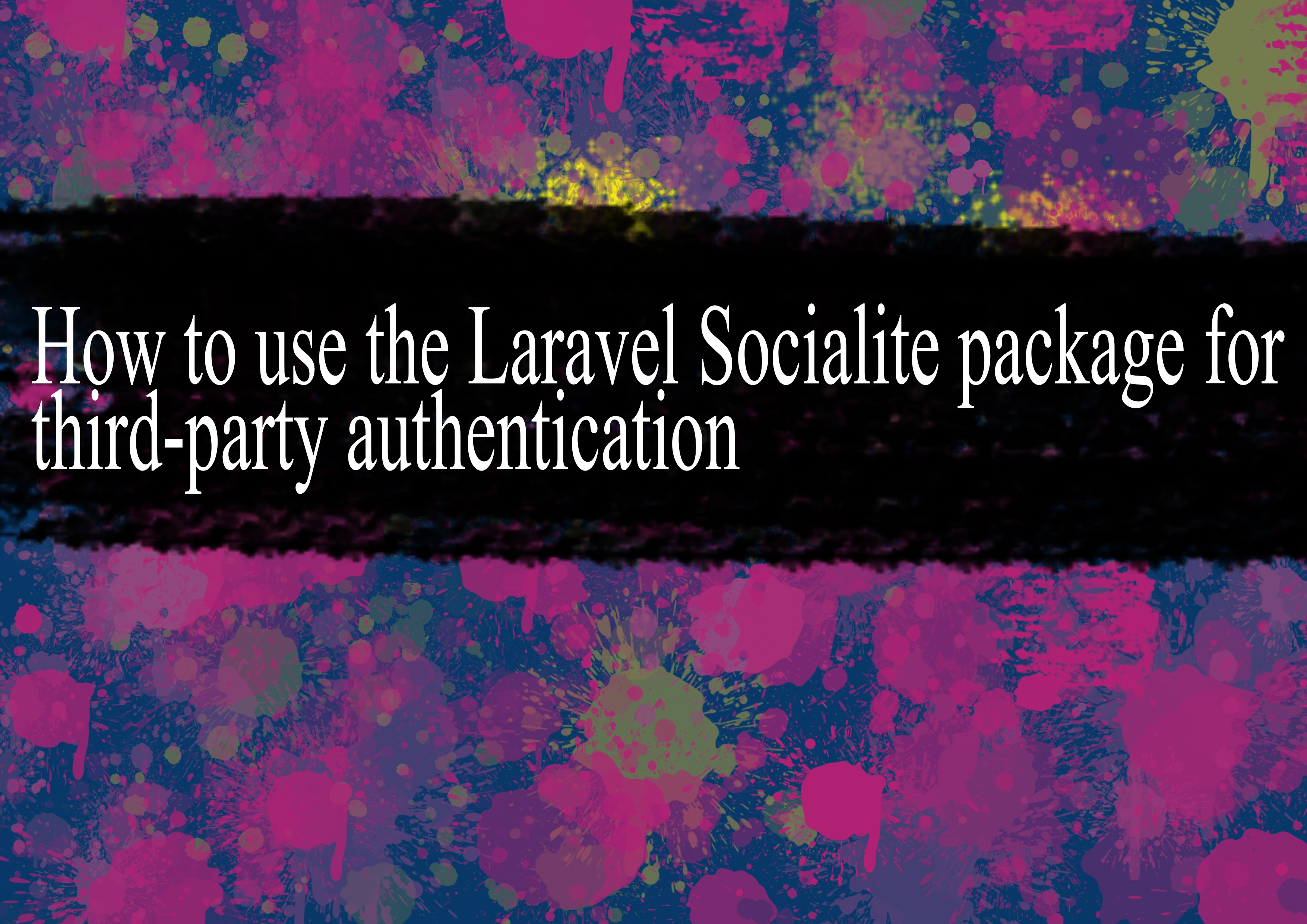How to use the Laravel Socialite package for third-party authentication

Laravel Socialite is a Laravel package that provides a convenient way to authenticate with OAuth providers. It simplifies the process of integrating third-party authentication services such as Facebook, Twitter, Google, GitHub, and others into your Laravel application.
Here are the general steps to use Laravel Socialite for third-party authentication:
Step 1: Install Socialite
You can install Laravel Socialite using Composer. Open your terminal and run the following command:
bashcomposer require laravel/socialite
Step 2: Configure OAuth Credentials
After installing Socialite, you need to set up OAuth credentials for the providers you want to use. Open your config/services.php file and add the following configuration for the desired providers:
php'github' => [
'client_id' => env('GITHUB_CLIENT_ID'),
'client_secret' => env('GITHUB_CLIENT_SECRET'),
'redirect' => env('GITHUB_REDIRECT_URI'),
],
// Add configurations for other providers as needed
Step 3: Create Routes
In your routes/web.php file, define routes for handling the authentication process:
phpRoute::get('/login/{provider}', 'Auth\LoginController@redirectToProvider');
Route::get('/login/{provider}/callback', 'Auth\LoginController@handleProviderCallback');
Step 4: Create Controller Methods
Create a new controller or use an existing one to handle authentication. In this example, let's use the LoginController.
bashphp artisan make:controller Auth\LoginController
In the LoginController, add the following methods:
phpuse Laravel\Socialite\Facades\Socialite;
class LoginController extends Controller
{
// Redirect the user to the OAuth provider
public function redirectToProvider($provider)
{
return Socialite::driver($provider)->redirect();
}
// Obtain the user information from the provider
public function handleProviderCallback($provider)
{
$user = Socialite::driver($provider)->user();
// Your application logic here (e.g., log in the user)
return redirect('/home');
}
}
Step 5: Update Environment Variables
Make sure to add the corresponding environment variables for the OAuth credentials in your .env file:
envGITHUB_CLIENT_ID=your-github-client-id
GITHUB_CLIENT_SECRET=your-github-client-secret
GITHUB_REDIRECT_URI=http://your-app-url/login/github/callback
Step 6: Test the Authentication
Now, you can visit the /login/{provider} route in your application to initiate the authentication process with the selected provider.
Remember to adapt the code according to your specific needs and integrate it into your user authentication flow.
Note: The steps might vary slightly depending on your Laravel version, so be sure to check the official Laravel Socialite documentation for the version you are using.
=== Happy Coding :)
-
Popular Post
- How to optimize for Google's About This Result feature for local businesses
- How to implement multi-language support in an Express.js application
- How to handle and optimize for changes in mobile search behavior
- How to handle CORS in a Node.js application
- How to use Vue.js with a UI framework (e.g., Vuetify, Element UI)
- How to configure Laravel Telescope for monitoring and profiling API requests
- How to create a command-line tool using the Commander.js library in Node.js
- How to implement code splitting in a React.js application
- How to use the AWS SDK for Node.js to interact with various AWS services
- How to use the Node.js Stream API for efficient data processing
- How to implement a cookie parser middleware in Node.js
- How to implement WebSockets for real-time communication in React
-
Latest Post
- How to implement a dynamic form with dynamic field styling based on user input in Next.js
- How to create a custom hook for handling user interactions with the browser's device motion in Next.js
- How to create a custom hook for handling user interactions with the browser's battery status in Next.js
- How to implement a dynamic form with dynamic field visibility based on user input in Next.js
- How to implement a dynamic form with real-time collaboration features in Next.js
- How to create a custom hook for handling user interactions with the browser's media devices in Next.js
- How to use the useSWRInfinite hook for paginating data with a custom loading indicator in Next.js
- How to create a custom hook for handling user interactions with the browser's network status in Next.js
- How to create a custom hook for handling user interactions with the browser's location in Next.js
- How to implement a dynamic form with multi-language support in Next.js
- How to create a custom hook for handling user interactions with the browser's ambient light sensor in Next.js
- How to use the useHover hook for creating interactive image zoom effects in Next.js